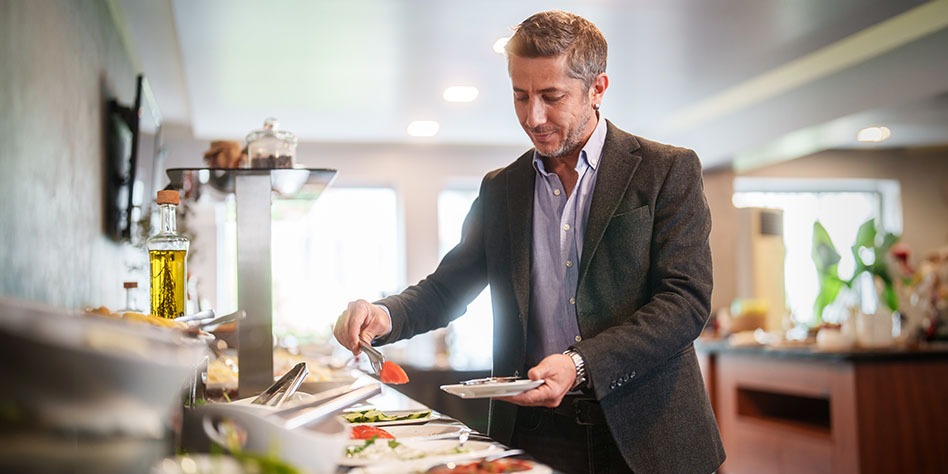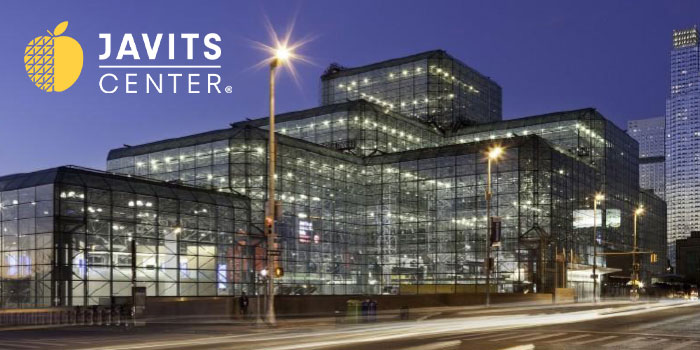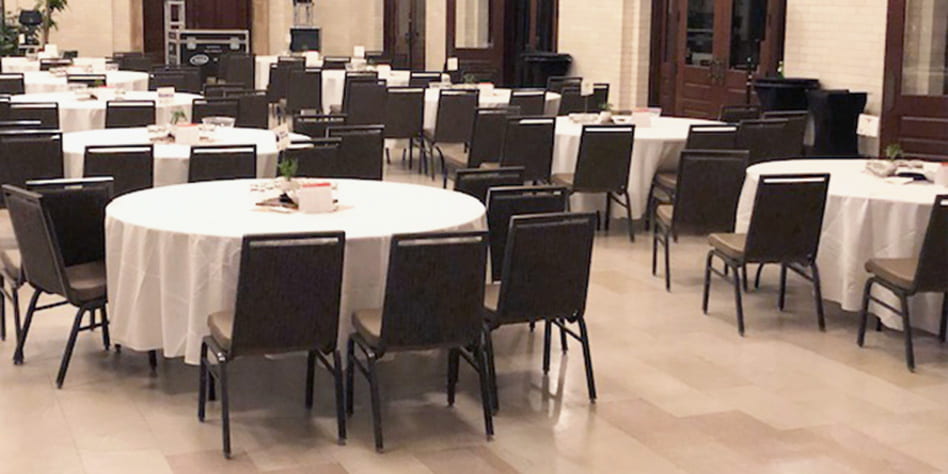
Industry Tips You Should Know
Event planners know that the design and setup of a room can have a profound impact. Therefore, rooms should be arranged and altered as needed to accommodate different types of events. If people are comfortable, they will have more fun, stay longer, and recommend your venue for future events.
Here are some tips on how to set up a room for two of the most common events — banquets and panel discussions.
Table Layouts for Banquets and Dinner Parties
When planning your dinner party, consider the flow of the room. It’s important that serving staff can access tables without disrupting guests and that attendees can come and go from their tables with ease.
For this reason, among others, round tables are often preferred to long rectangles. Compare these two event table setups and you’ll see why.
Event Setup Option 1 – Rectangular Tables for Banquets
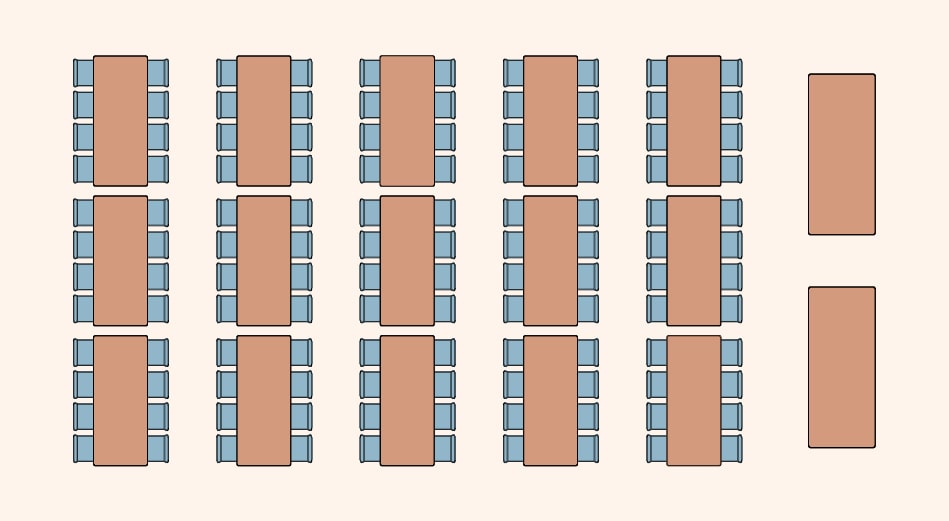
Long rows of rectangular tables are a typical table setup for events like banquets and dinners held by community centers and small organizations. Also known as “family style dining,” this banquet layout option is thousands of years old. Although common, this setup doesn’t provide the best use of the space or offer the best experience for guests.
Due to the layout of the tables and banquet chairs, guests can only talk to those seated directly in front of or next to them, or to the few guests on either side of them. It’s also difficult for guests to talk with those seated at other tables or even those seated further down the table.
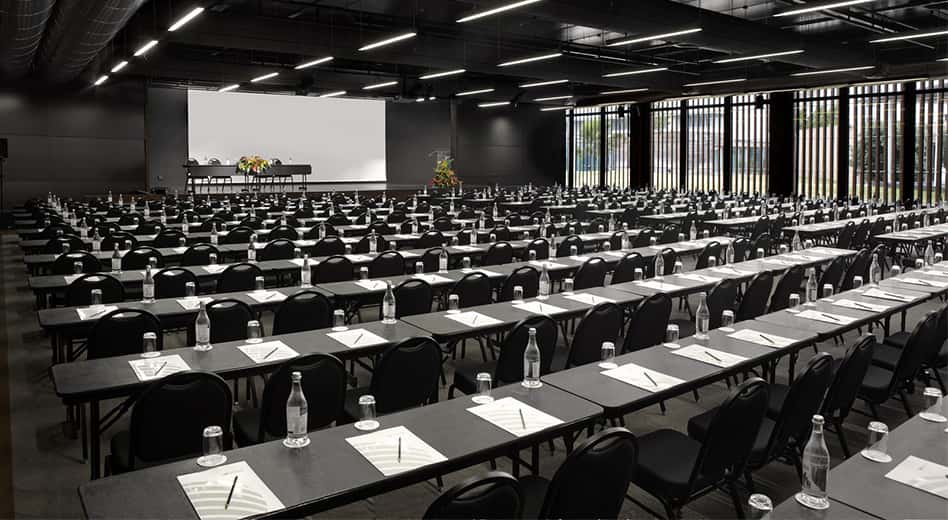
Navigating between tables is difficult for guests and serving staff because they must walk all the way to one end of one table before crossing to another row and then walking up the row to the desired location.
Those who have attended dinners with this room setup likely remember it being noisy and difficult to hear the person sitting across the table. That’s partially because everyone is facing one of two directions, so conversation isn’t dispersed throughout the room. The placement of the banquet tables is also not ideal because those at the back of the room must walk a long way to get to the food.
Despite the disadvantages, rectangular tables are still a popular banquet setup and are often used as the head table at formal events and wedding dinners. When honored guests are seated at rectangular tables, they are often only seated on one side of the table, facing the rest of the guests.
Event Setup Option 2 – Round Tables for Banquets
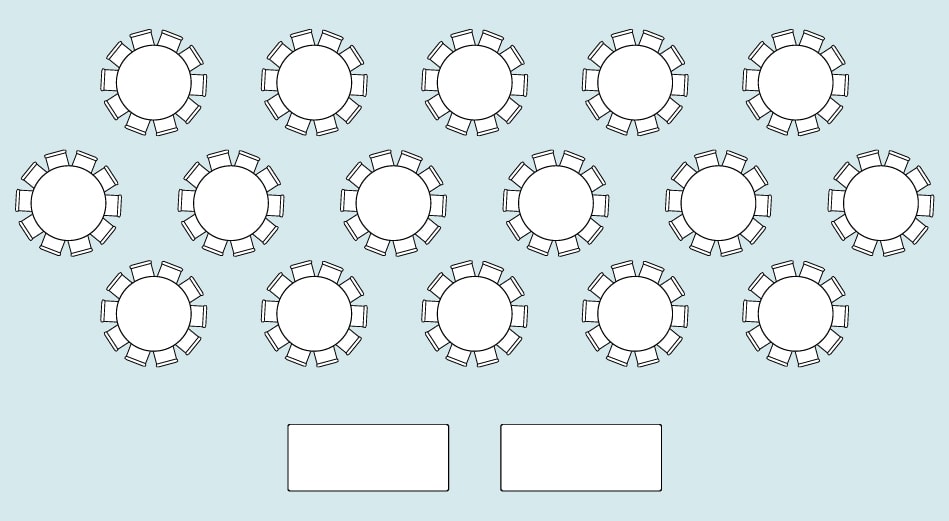
A more practical setup uses round tables spaced throughout the room. This way, guests can converse with everyone at their table (up to 10 people) instead of just a few people.
It’s also easier for guests to mingle with those at other tables, and for banquet staff to serve the guests. In this room layout, the banquet tables are also more easily accessible to everyone in the room, especially if the food is put against a center wall instead of at one end.
In addition, dinner conversation will be easier with all the guests seated at a particular table. Everyone can talk across the table to each other. In addition, the room will be less noisy and because people are facing in several different directions, allowing the sound to be dispersed throughout the room.
PRO TIP:
To make the most of a round banquet table layout, ensure there are at least four feet between each table to allow guests to move about the room comfortably. There should be 24 inches of open space behind each chair when it’s pushed out so that guests and serving staff can move freely without bumping the backs of chairs.
FUN FACT:
Round tables often take up the same amount of square feet per person as rectangle tables. A 60” round table typically seats 8 people – just like a 30”x96” rectangle table – and both take up about 20 square feet.
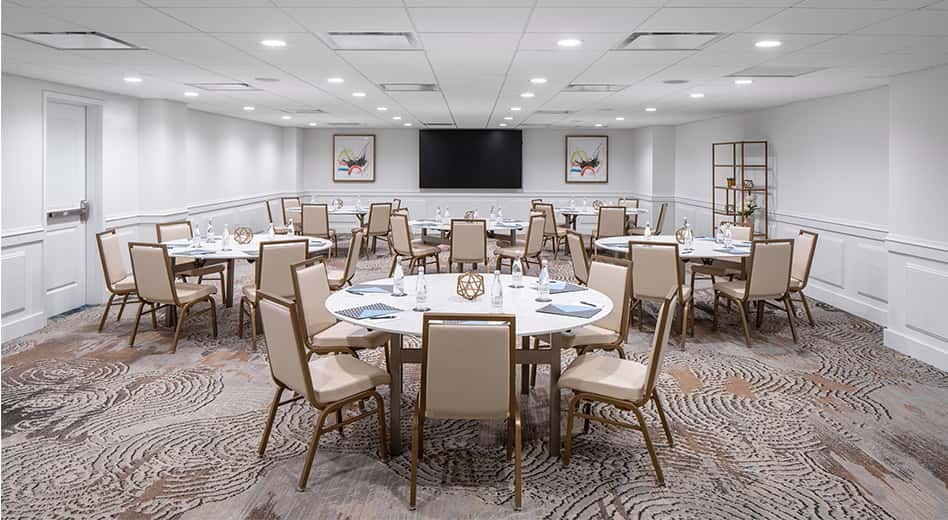
Meeting Room Setup Styles for Conferences & Panel Discussions
If your event includes a panel of experts, you want to ensure they can address each other while still being visible to the audience. That’s why we recommend a unique table and seating setup for this type of event.
Setup Option 1 – Panels
Many organizations set up panel discussions with the speakers seated in a straight line facing the audience. This makes it difficult for the panelists to see each other and most spend the discussion turned to one side or the other rather than facing the audience. This format also requires the moderator to sit on one end or the other which makes it difficult for him or her to see all the panelists.
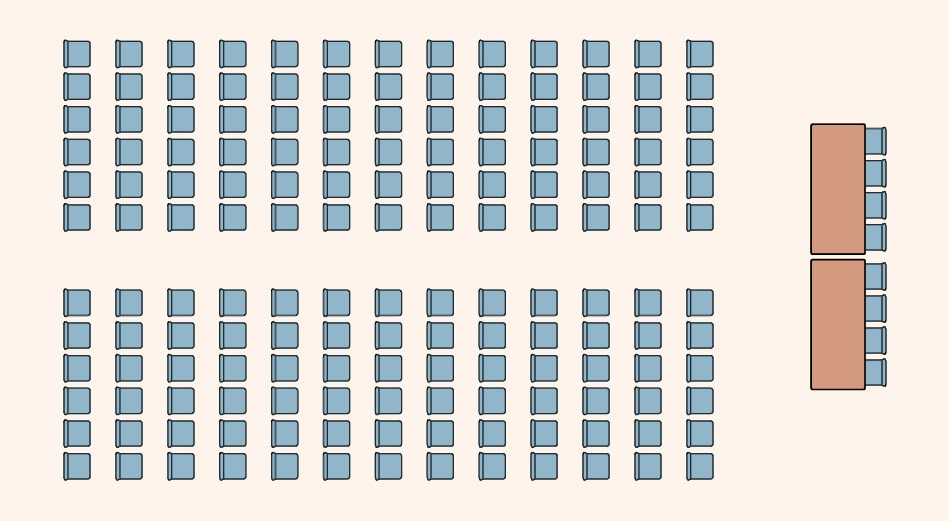
Setup Option 2 – Panels
A better option is to put three tables in a U shape so that the panelists can talk directly to one another and still be visible to the audience. This setup might also put speakers at ease and help them feel like they are having a discussion or meeting with each other rather than being put on display. This also enables the participants to see the moderator better. The moderator can walk freely around the tables, stand to one side, or even stand in the middle of the tables.
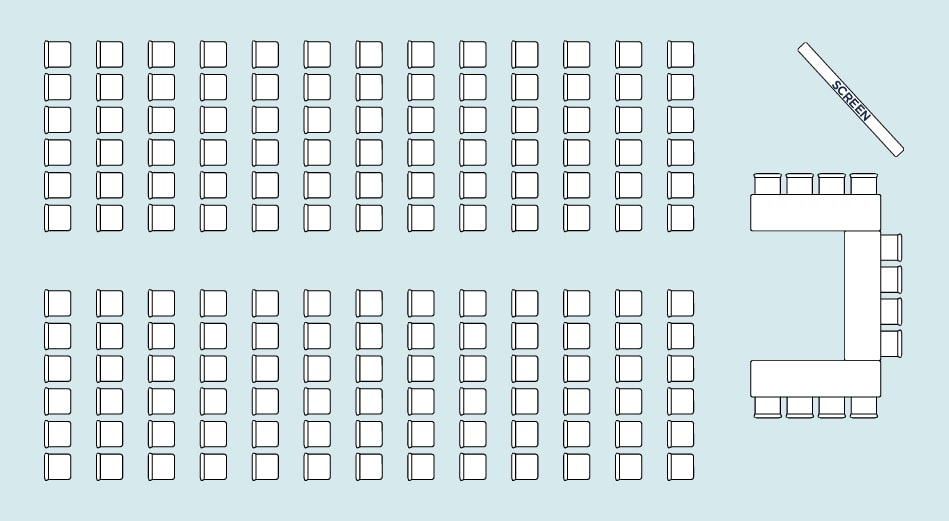
PRO TIP:
If you have the technical capability, put a camera in the center of the tables and play real-time video on a screen so that audience members in the back can see the facial expressions of the speakers.
What if you want to use round tables at a panel discussion? Use cabaret seating.
Event Furniture That Suits the Best Event Layout Ideas
These tips can help you select the right event furniture for your venue and design room layouts that make your events more successful than ever.
If your event furniture isn’t setting the right mood or accommodating the room layout your events require, maybe it’s time for an upgrade. Shop high-quality, customizable event tables, banquet chairs, and even dance floors from MityLite.

Call 800-909-8034 to get in touch with a dedicated sales rep today!
Products Featured in This Article
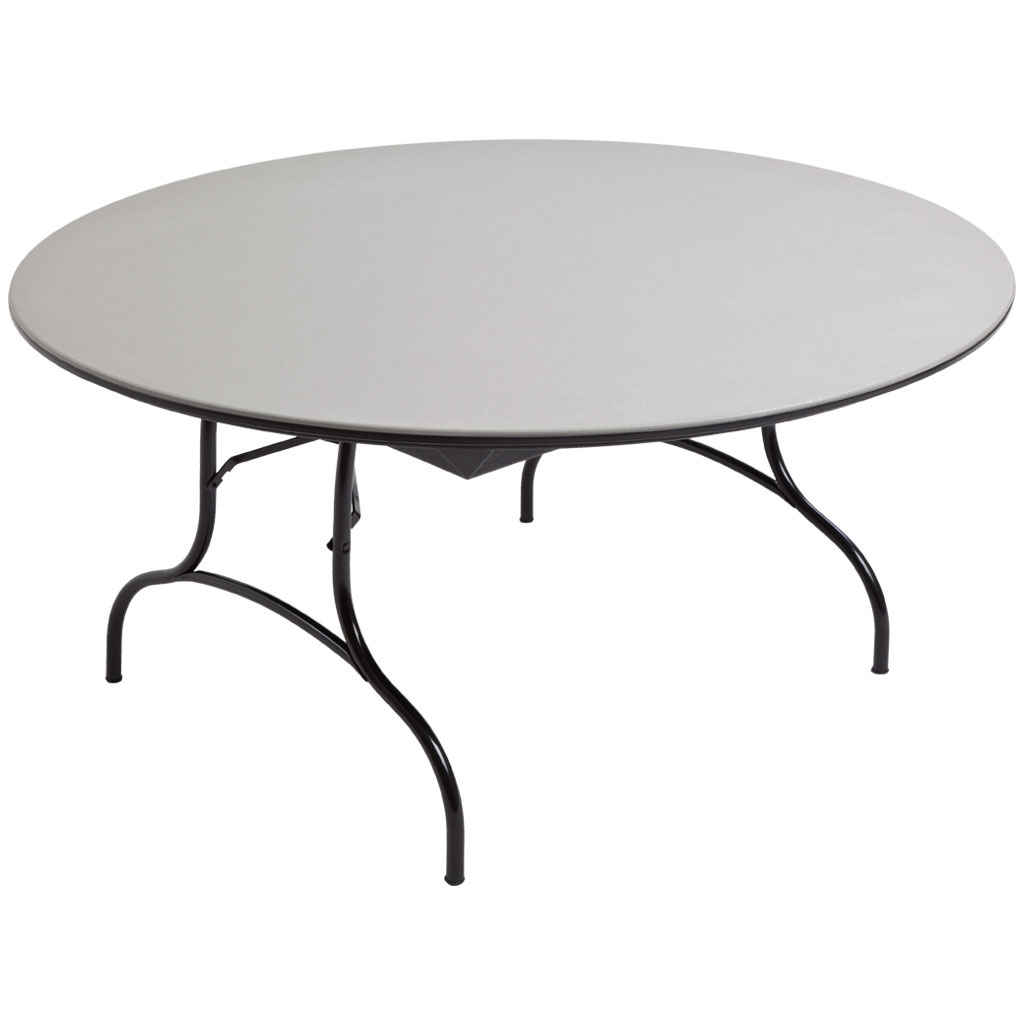
ABS Round Folding Table
5 Table Sizes, 2 Table Heights
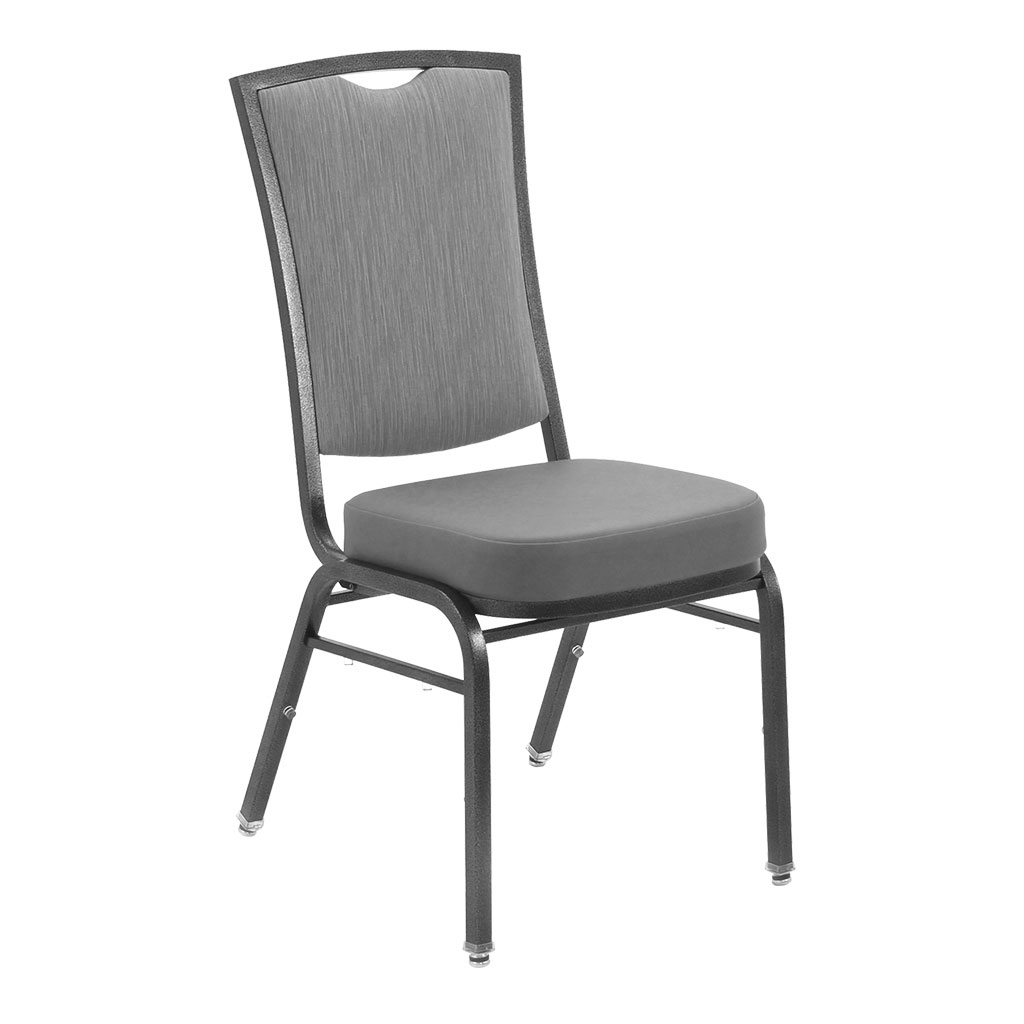
Classic Banquet Chairs
5 Chair Back Styles
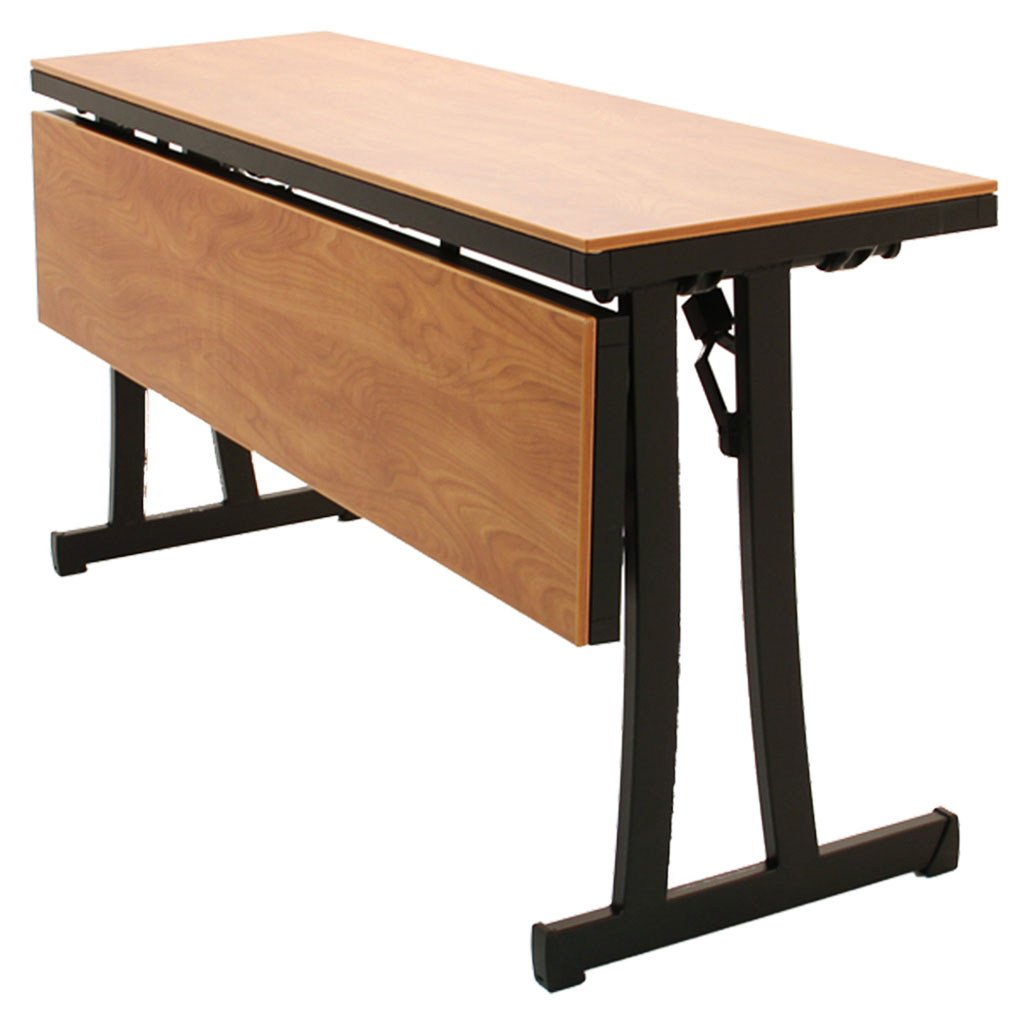
Reveal Linenless Duo Table
5 Table Sizes

